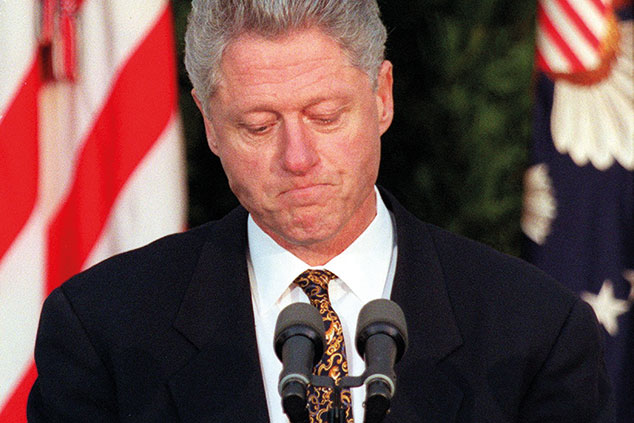
Not a lot, is the likely short answer. The first reason for this, according to Fidelity’s Tom Stevenson in The Daily Telegraph, is that his most economically positive policies have already been implemented. Were Trump to be removed, his replacement Mike Pence would be unlikely to change tack. Besides, investors are generally happy to overlook political dramas in Washington and focus on the economic and market fundamentals instead.
When Richard Nixon resigned rather than face removal from office, the market, says Stevenson, responded positively “to a clearing of the air after the Watergate scandal”. Following the impeachment of Bill Clinton in 1998 after he lied about his affair with Monica Lewinsky, the markets remained unperturbed too.
At present the US economy continues to gather steam. Corporate profits are rising strongly, driven in part by Trump’s corporation-tax reforms. Wages have gone up by 2.7% during the year to July, while employment has fallen below 4%.
But by 2019 the boost from tax cuts will begin to fade, interest-rate increases will start to bite, and the global economy will be slowing as a result of protectionism, says The Observer. That’s why the mid-term elections could result in a Congress hostile to Trump. “All bull markets… end sooner or later” and the second 18 months of Trump’s presidency presage “a choppier time” for Wall Street, says The Observer, whether Trump is impeached or not.